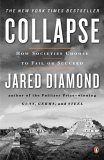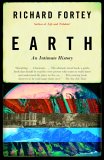Summary | Excerpt | Reading Guide | Reviews | Read-Alikes | Genres & Themes | Author Bio

A magisterial accomplishment: both a moving description of our biosphere and a guidebook for the protection of all its species, including humankind.
From one of the world’s most influential scientists (and two-time Pulitzer Prize–winning author) comes his most timely and important book yet: an impassioned call for quick and decisive action to save Earth’s biological heritage, and a plan to achieve that rescue.
Today we understand that our world is infinitely richer than was ever previously guessed. Yet it is so ravaged by human activity that half its species could be gone by the end of the present century. These two contrasting truths—unexpected magnificence and underestimated peril—have become compellingly clear during the past two decades of research on biological diversity.
In this dazzlingly intelligent and ultimately hopeful book, Wilson describes what treasures of the natural world we are about to lose forever—in many cases animals, insects, and plants we have only just discovered, and whose potential to nourish us, protect us, and cure our illnesses is immeasurable—and what we can do to save them. In the process, he explores the ethical and religious bases of the conservation movement and deflates the myth that environmental policy is antithetical to economic growth by illustrating how new methods of conservation can ensure long-term economic well-being.
The Future of Life is a magisterial accomplishment: both a moving description of our biosphere and a guidebook for the protection of all its species, including humankind.
 Kathryn S. Fuller, President, World Wildlife Fund
E.O. Wilson delivers an impassioned plea for a new human ethic based on a wiser, more careful stewardship of our vanishing natural world. Wilson invites us to share his optimism that we still have an opportunity to save the living things and wild places that sustain us and give us hope.
Kathryn S. Fuller, President, World Wildlife Fund
E.O. Wilson delivers an impassioned plea for a new human ethic based on a wiser, more careful stewardship of our vanishing natural world. Wilson invites us to share his optimism that we still have an opportunity to save the living things and wild places that sustain us and give us hope.
If you liked The Future of Life, try these:

by Jared Diamond
Published 2006
Brilliant, illuminating, and immensely absorbing, Collapse is destined to take its place as one of the essential books of our time, raising the urgent question: How can our world best avoid committing ecological suicide?

by Richard Fortey
Published 2005
A fascinating geological exploration of the earth's distant history as revealed by its natural wonders.
Nearly all men can stand adversity, but if you want to test a man's character, give him power.
Click Here to find out who said this, as well as discovering other famous literary quotes!